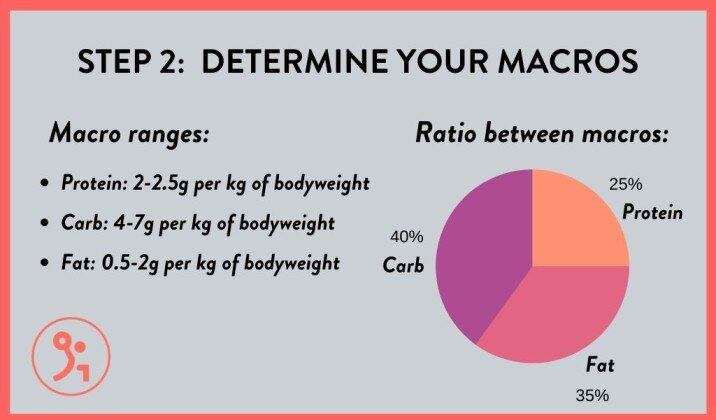

Strongr Fastr’s macro meal planner will automatically calculate this for you. What is a good macro meal plan?Īs a general rule-of-thumb, your macro meal plan should have at least 0.8 - 1g of protein per pound of bodyweight*, whether you want to lose weight, build muscle, or tone up. Macro meal planning can help you hit your goals, stay on track, and gain a deeper understanding of what you’re eating and what roles it plays in your body. All macros are important when it comes to vitamin absorption, hormone production, and more. Eating sufficient amounts of protein will allow you to retain muscle mass while losing weight, allowing you to look more toned and burn more fat- instead of burning muscle. While above all, it’s most important to hit calorie goals, hitting macro goals like protein, come in second place.

Whether you want to lose weight, gain weight, or build muscle- macros help get you there. Macros should be a core component of any fitness plan. Others use macro meal plans to try to limit carbs. Through macro meal planning, you can ensure that you get enough protein, for example- something that is important for building muscle or ensuring that you lose fat and not muscle when you're losing weight. Each macro plays a part in the functioning of your body and all are important. There are 4 calories per gram of protein and carbohydrates, and 9 calories per gram of fat. If you know how many grams of each macro are in what you’re eating, you can calculate how many calories are in your meal. Macros for weight gain: 20% protein, 20-30% fat and 50-60% carbs.“Macros”, short for macronutrients, are the 3 main building blocks of food- protein, carbohydrates, and fat. Macros for strength: 30% protein, 30% fat and 40% carbs.Macros for athletic performance: 25% protein, 20% fat and 55% carbs.The standard ratios for these impacts are: Macronutrient ratio diets can also have significant effects on athletic performance, endurance, strength and weigh gain.
#MACRO DIET PLAN MUSCLE GAIN PROFESSIONAL#
The safest way to determine the appropriate ratios for glucose regulation is to consult with a professional dietitian because diabetes is a serious medical condition. Macronutrient ratios for diabetics include food choices like fresh fruits and vegetables, healthy fats, and proteins.

Macronutrient-based portion control can assist with managing glucose levels in diabetics. A typical daily macro ratio for bodybuilding could look something like 30% protein, 30% fat and 30% carbs. Timing macronutrient intake with more carbs immediately post-workout and more protein later in the day to aid recovery helps bodybuilders get the right fuel at the right time for optimal results. Muscle building often requires higher caloric intakes and higher carbohydrate ratios to generate muscle mass after workouts. For people who exercise more than two hours daily, it is recommended to consult with a certified sports dietitian for a personalized macronutrient ratio that supports a high level of physical activity and healthy weight loss. People who exercise one to two hours a day generally require 30% protein, 25% fat and 45% carbs. However, most people who exercise for less than an hour a day require a macro ratio of 30% protein, 30% fat and 40% carbs for weight loss. Identifying the most accurate macronutrient ratio for weight loss depends upon each individual’s size, age and activity level. While macros make up the bulk of your diet, excess intake of one or more macronutrients can lead to obesity and obesity-related disorders. Customizing macro ratios can help individuals lose weight, build lean muscle, manage blood sugar and maintain health and fitness. Macronutrients consist of carbohydrates, proteins and fats, as well as water and macrominerals such as sodium, potassium, calcium and magnesium. However, macronutrient ratios can also be used to customize diets to support health and fitness goals. Personal trainers and dietitians evaluate macronutrient ratios to understand where their clients’ calories are coming from and identify dietary imbalances. Also referred to as “macros,” macronutrients are chemicals from foods that are required by the body in large amounts for growth, energy, and maintenance.

Macronutrients are more than just a weight loss trend.


 0 kommentar(er)
0 kommentar(er)
